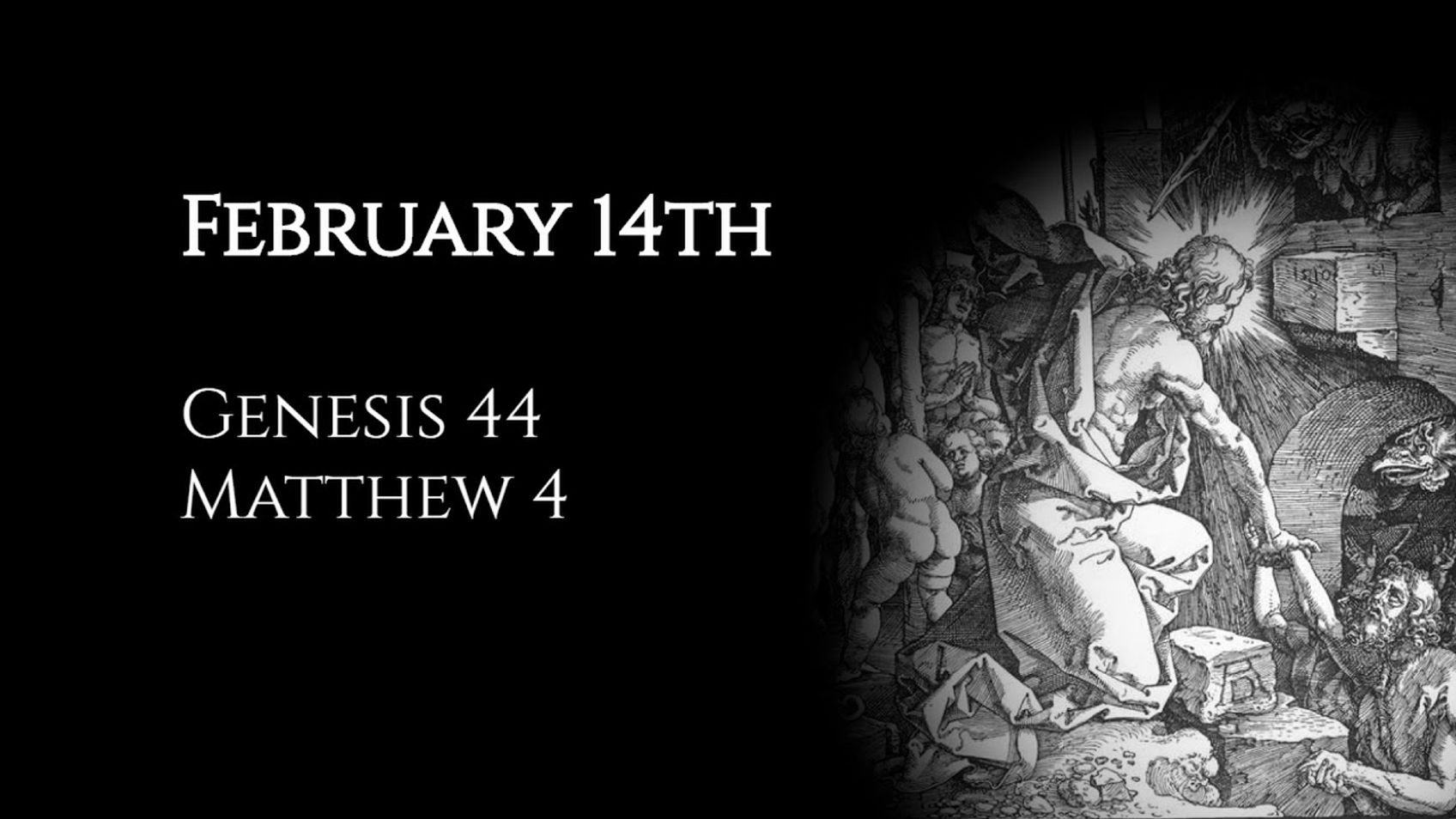February 14th: Genesis 44 & Matthew 4

Judah intercedes for Benjamin. Jesus tempted in the wilderness; the call of the first disciples.
Some passages referenced:
Genesis 31 (the pursuit of Jacob by Laban); Genesis 38 (Judah and Tamar)
Mark 1, Luke 4 (parallel accounts of the temptations); Genesis 3 (temptation in Eden); 1 Samuel 16-17 (David's anointing and facing Goliath); Ezekiel 1 (Ezekiel's vision); Daniel 4 (Nebuchadnezzar's humiliation); Exodus 34:28, Deuteronomy 9:9 (forty days and forty nights for Moses); Matthew 26:63, 27:40, 27:43 (Jesus tempted three times at the cross); Deuteronomy 8 (teaching concerning manna); Psalm 91:4 (the protective 'wing'); Numbers 14 (premature attempt to enter the land); Deuteronomy 34 (Mount Nebo); Isaiah 9:1-2 (Jesus in Naphtali and Zebulun); 1 Kings 19:19-21 (the call of Elisha); Jeremiah 16:16 (fishing as judgment); Isaiah 40:9-11, 52:7-10 (the 'gospel' in Isaiah).
Reflections upon the readings from the ACNA Book of Common Prayer (http://bcp2019.anglicanchurch.net/).
If you have enjoyed my output, please tell your friends. If you are interested in supporting my videos and podcasts and my research more generally, please consider supporting my work on Patreon (https://www.patreon.com/zugzwanged), using my PayPal account (https://bit.ly/2RLaUcB), or by buying books for my research on Amazon (https://www.amazon.co.uk/hz/wishlist/ls/36WVSWCK4X33O?ref_=wl_share).
The audio of all of my videos is available on my Soundcloud account: https://soundcloud.com/alastairadversaria. You can also listen to the audio of these episodes on iTunes: https://itunes.apple.com/gb/podcast/alastairs-adversaria/id1416351035?mt=2.
More From Alastair Roberts

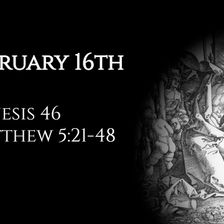
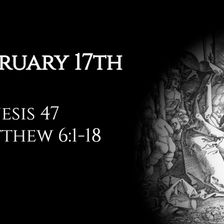
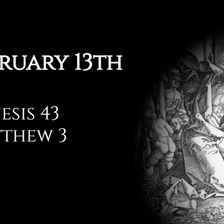
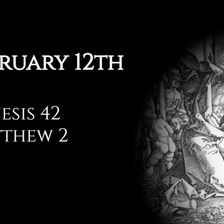
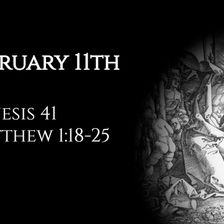
More on OpenTheo















